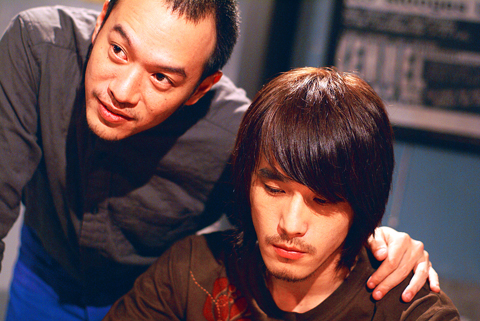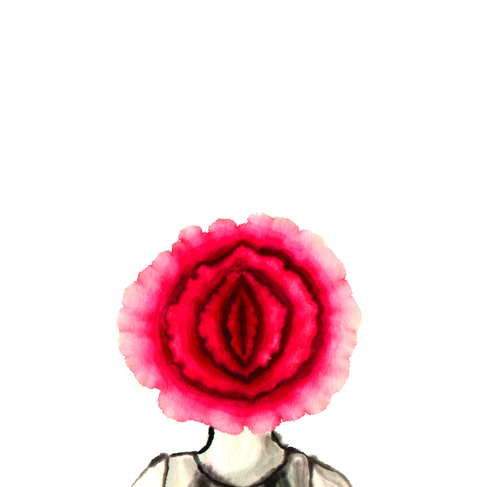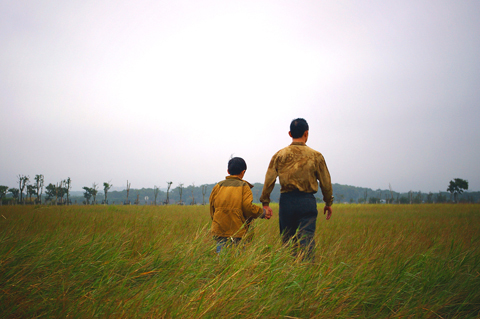The Golden Harvest Awards (金穗獎) was where Taiwanese New Wave auteur Ke Yi-cheng (柯一正) was discovered and embarked on his directing career. It was where documentary filmmaker Yang Li-chou (楊力州) found the courage to go on when nobody believed in him, including himself. And it was where director Zero Chou (周美玲) earned three months of living expenses.
This year, Golden Harvest celebrates its 30th anniversary as Taiwan's oldest film festival dedicated to supporting experimental filmmaking. Organized by the Chinese Taipei Film Archive (國家電影資料館), the annual event may not be as popular or well known as the Golden Horse (金馬獎) or Taipei (台北電影節) film festivals, but it is looked upon as a highly regarded platform for film students and young filmmakers.

A look at past lineups shows why the event is said to be the cradle of Taiwanese cinema: luminaries such as Tsai Ming-liang (蔡明亮), Ang Lee (李安) and Wan Jen (萬仁), as well as younger talents Lin Jing-jie (林靖傑), Wei Te-sheng (魏德聖) and Tom Shu-Yu Lin (林書宇), all found early recognition here.
To mark the anniversary, 48 films have been selected from among the festival's archive collection of nearly 500 past nominations for a retrospective program that may include the only public screenings of many of these works for years to come.
As the winner of the first Golden Harvest Award, legendary director Wang Chu-chin's (王菊金) experimental film Years of Wind (風車, 1978) begins the journey down memory lane with its mix of a male train passenger's flashbacks and black-and-white dream sequences. Best known for his The Legend of the Six Dynasty (六朝怪談, 1979) and On the Society File of Shanghai (上海社會檔案, 1981) that catapulted Lu Hsiao-fen (陸小芳) to stardom, Wang is an influential figure in Taiwanese cinema because of his unique blend of social realism with genre cinema.

Ang Lee's student film I Wish I Was by That Dim Lake won the future Oscar-winner his first gong in 1982. The film is a story about a down-and-out actor torn between his dreams and real life, which was, perhaps, a prescient choice of subject given the director's six years spent as a house-husband before his feature debut Pushing Hands (推手, 1991).
The Golden Harvest was the only Taiwanese festival to encourage filmmakers to use the 8mm format, and this year's retrospective includes Tsai Ming-liang's experimental 8mm short UFO Rhapsody (飛碟狂想, 1981), which will be screened along with Mai Da-jie's (麥大傑) single-frame 8mm animation short, Check (將軍, 1982). Another notable screening is seven-time Golden Harvest Award winner and elusive contemporary artist Kao Chung-li's (高重黎) 1984 work That Photograph (那張照片), an examination of photographer Josef Koudelka's work.
Six Golden Harvest Award recipients were invited to make short films about their thoughts and reflections on Taiwanese cinema, society and culture.

The results include Popcorn (爆米花) directed by Ke Yi-cheng (柯一正) who in the film searches for his mentor, Wang Chu-chin, and makes humorous observations on how a film's popularity can be measured by the rate of popcorn consumption at movie theaters and how the Golden Harvest trophy can be put to good use in the kitchen.
Zero Chou's The Wheat Doesn't Die (麥子不死), follows the tradition of corny romance and is a hilarious story about a gangster who mistakenly thinks that Taiwanese cinema is about to take off again and so orders that a director be kidnapped and held for ransom.
Diva Viva (宇宙歌女) is Wu Mi-sen's (吳米森) whimsical translation of the country's social and political chaos into a sci-fi comedy about a war between a singing alien and a hysterical mother played by musician Ma Nien-hsien (馬念先) in drag.

As for works by the up-and-coming generation of filmmakers, 36 films selected from among 115 entries will compete for NT$3 million in prize money. The biggest surprise this year is the animation program, which offers more diversity in style and more maturity in technique and storytelling than ever. Experimental cinema, on the other hand, seems to have hit a slump in Taiwan, and there is an ongoing debate as to whether or not the experimental film award should be discontinued or expanded to include video art and multimedia.
Experimental director Lin Tay-jou (林泰州), Kao Chung-li and veteran filmmaker and festival curator Angelika Wang (王耿瑜) will examine this issue at the Eslite Bookstore Dunnan branch on July 26, while directors Ke Yi-cheng, Angelika Wang, Yang Li-chou and Wu Mi-sen, along with other past winners, will share their Golden Harvest Festival stories at the Eslite Bookstore Dunnan branch on July 27.
The festival will then tour the rest of the country next month and September.


On April 26, The Lancet published a letter from two doctors at Taichung-based China Medical University Hospital (CMUH) warning that “Taiwan’s Health Care System is on the Brink of Collapse.” The authors said that “Years of policy inaction and mismanagement of resources have led to the National Health Insurance system operating under unsustainable conditions.” The pushback was immediate. Errors in the paper were quickly identified and publicized, to discredit the authors (the hospital apologized). CNA reported that CMUH said the letter described Taiwan in 2021 as having 62 nurses per 10,000 people, when the correct number was 78 nurses per 10,000

As we live longer, our risk of cognitive impairment is increasing. How can we delay the onset of symptoms? Do we have to give up every indulgence or can small changes make a difference? We asked neurologists for tips on how to keep our brains healthy for life. TAKE CARE OF YOUR HEALTH “All of the sensible things that apply to bodily health apply to brain health,” says Suzanne O’Sullivan, a consultant in neurology at the National Hospital for Neurology and Neurosurgery in London, and the author of The Age of Diagnosis. “When you’re 20, you can get away with absolute

May 5 to May 11 What started out as friction between Taiwanese students at Taichung First High School and a Japanese head cook escalated dramatically over the first two weeks of May 1927. It began on April 30 when the cook’s wife knew that lotus starch used in that night’s dinner had rat feces in it, but failed to inform staff until the meal was already prepared. The students believed that her silence was intentional, and filed a complaint. The school’s Japanese administrators sided with the cook’s family, dismissing the students as troublemakers and clamping down on their freedoms — with

As Donald Trump’s executive order in March led to the shuttering of Voice of America (VOA) — the global broadcaster whose roots date back to the fight against Nazi propaganda — he quickly attracted support from figures not used to aligning themselves with any US administration. Trump had ordered the US Agency for Global Media, the federal agency that funds VOA and other groups promoting independent journalism overseas, to be “eliminated to the maximum extent consistent with applicable law.” The decision suddenly halted programming in 49 languages to more than 425 million people. In Moscow, Margarita Simonyan, the hardline editor-in-chief of the